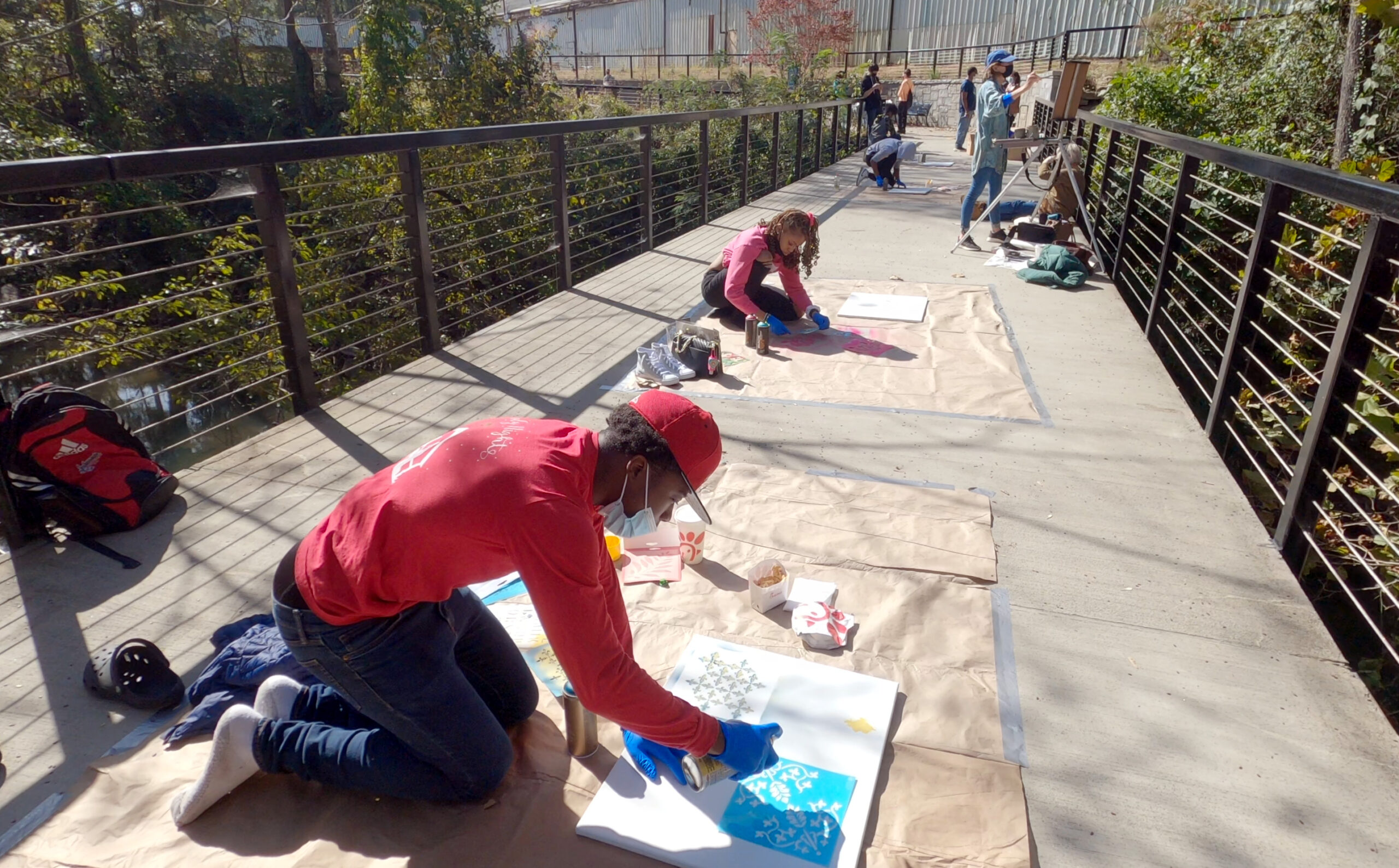Atlanta Music Festival Focuses On The Environment, Social Justice Through The Arts

There will be virtual events going on with AMF from Jan. 25 to 30.
Courtesy of Atlanta Music Festival
The Atlanta Music Festival is an annual series of events dedicated to promoting the arts and social justice through the presentation of African American concert music and poetry.
The 2021 AMF addresses the importance of the environment, social justice and equality through the arts. Dr. Dwight Andrews is artistic director, and Dr. Steven Darsey is music director of the Atlanta Music Festival.
The online festival runs Jan. 25 to 30.
Interview Highlights
How Atlanta Music Festival was created:
“The first African American pastor of First Congregational Church, where I now currently serve as pastor, right after the race riots, he was very much a part of the church leaders and civic leaders that were trying to reconcile Atlanta. It had been so ravaged by the race riots of 1906. And out of those efforts, he thought it might be a good idea to make an opportunity for the races, Black and white, to come together around music as a way to not only learn about one another but also to share the power of music. They created the Atlanta Music Festival in 1910 as a way to literally bring people together and to bring people to the idea that African Americans celebrate many different musical expressions. That’s why the idea of concert music by African Americans was so central to that very first festival,” said Andrews.
The festival continued for eight years, then it was revived in 2001 by Andrews and Darsey.
This year’s focus on Proctor Creek:
“Unfortunately many of us, including me, didn’t know that much about the west side of Atlanta. Sally Sears, a TV journalist here, took a couple of us on tour of the west side over a year ago and we learned about Proctor Creek. We learned about some of the important neighborhoods and the wonderful histories … and some of the troubled histories as well,” said Darsey.
Raw sewage and pollution used to overflow in the waters of Proctor Creek due to the way Atlanta’s sewers were built. Over the years, Atlanta has worked to fix this issue.
The connection between social justice and the environment:
“We often think of social justice in many ways much too small. The ways in which environmental justice is just as important as social justice, as police violence or other things that we often times think of. The fact is that many poor people and people of color often times live in toxic neighborhoods. That’s a part of our American cultural history, and we sometimes overlook how important a healthy environment is to a healthy community,” said Andrews.
He continued, “I’m excited that, at this year’s festival, we can talk about the connections between activism and advocacy and art. We can bring together community members, young folks and old folks and artists all to engage in the same idea of how to create a healthy ecosystem for our entire community.”
Official Schedule from Press Release:
• Monday, Jan. 25
The Beauty of Proctor Creek: Dance performance by Glo ATL. Glo ATL movement artists Ashley Ianna Daye, Christina Hiroko Kelly and Mechelle Tunstall perform “i came to explore the sun, of something more permanent, the moves are maps,” in and around Atlanta’s Proctor Creek. In the work, choreographed by Lauri Stallings for the Atlanta Music Festival 2021, the performers dance in the bright waters and falls of Proctor Creek and play with light and shade. The work is meant to serve as a catalyst for discussion on equity, race, history and who gets to dance.
• Tuesday, Jan. 26
A Walk Through the Environmental, Social and Cultural History of the West Atlanta Watershed with environmental historian Dr. Will Bryan and community and cultural and social historian the Rev. Dr. Skip Mason. This tour of the West Atlanta watershed walks participants through sites of scientific, environmental and cultural significance on the creek.
• Wednesday, Jan. 27
Seeing Proctor Creek through the Eyes of Future Environmentalists/Artists. Students and teachers from Booker T. Washington High School create art on the Proctor Creek PATH following a visit to the creek’s plastic trap led by Darryl Haddock of West Atlanta Watershed Alliance. Yinzi Kong of the Vega Quartet performs “water” music and plein air artist Emily Hirn paints a view of the creek, working onsite, in the moment.
• Thursday, Jan. 28
The Rev. Dwight Andrews interviews artist Radcliffe Bailey. This interview includes a walk through the artist’s studio and a discussion of the influence of the environment, music and history on Bailey’s art, with particular attention to his newest work to be installed at Cascade Springs in the West Atlanta watershed.
• Friday, Jan. 29
Science and Environmental and Community Activism: The story of the West Atlanta Watershed Alliance (WAWA). This event features WAWA’s Darryl Haddock and Dr. Na’Taki Osborne Jelks. The organization has worked for 30 years to improve water quality in Proctor and Utoy creeks. Haddock and Osborne Jelks explain the science of creek restoration and how the communities around the creeks have been galvanized to work for environmental justice in the watershed.
• Saturday, Jan. 30
Concert featuring internationally acclaimed bass opera singer Morris Robinson, tenor Timothy Miller and the Meridian Chorale performing an array of works, including pieces by composer Trevor Weston. WABE’s Molly Samuel narrates.





